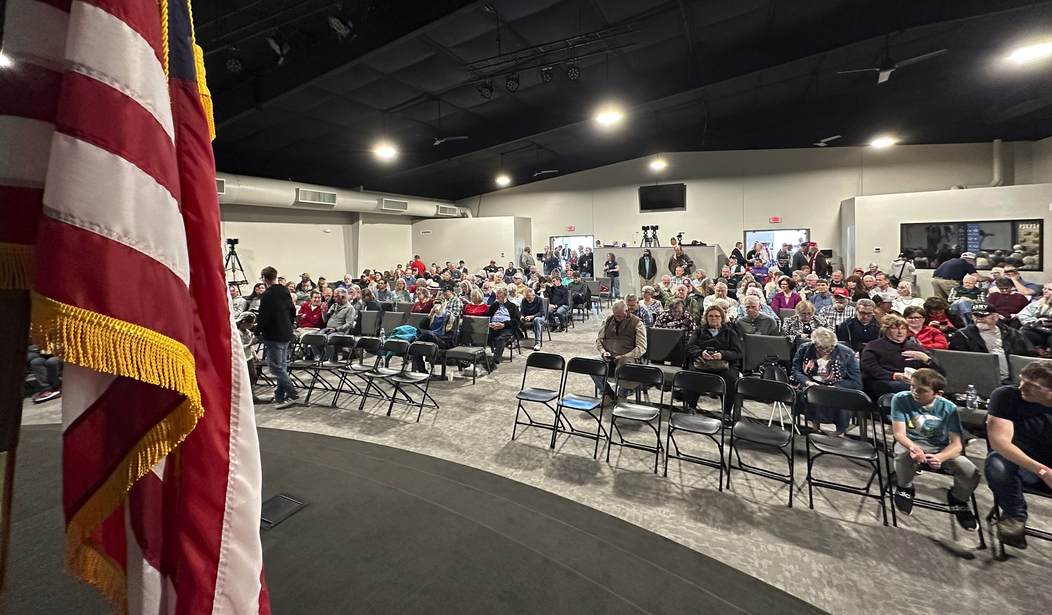On Saturday, I participated in my first presidential caucus. Perhaps I am showing my age, but Ronald Reagan was the first president I was old enough to vote for, and growing up in a conservative household, I proudly did so in both a presidential primary and the 1984 general election. But here in Missouri, the legislature passed a law in 2022 that changed the presidential primary process to that of a caucus. Kind of a curious decision. The last time Missouri held presidential caucuses was in 2012, and it didn't go well. At one caucus, the event had to be shut down, and even police were called because of confusion over the process, and supporters of various candidates became a bit contentious over a tangled delegate selection process.
RELATED:
I Attended a Michigan GOP County Convention Last Thursday Night and I Actually Had Fun
Not being as politically involved as I am now, I did not participate in the 2012 version of the Missouri presidential caucuses, but I did on Saturday, March 2. While I certainly do not advocate anyone sitting out the democratic process and cannot speak for all of my fellow Missourians, the whole caucus process left a lot to be desired.
***#BREAKINGNEWS*** Citizens for David Stuckenberg continues to receive reports from Missouri voters that vote counts in the 2024 #Missouri GOP Presidential Caucus do not seem to be reported correctly. We know for a fact votes for both #DavidStuckenberg and #NikkiHaley were cast.… pic.twitter.com/oNTUdmTUh9
— David Stuckenberg (@DrStuckenberg) March 2, 2024
I live in Missouri's First Congressional District (CD1). The district includes St. Louis City and portions of St. Louis County. Like Baltimore City and County in Maryland, St. Louis City and County are separate entities and have been since 1876. On Saturday, the city and county each held their own caucuses for CD1. On April 6 at the Congressional Caucus, delegates from both the city and county will be in attendance.
Around 250 people showed up at my caucus site. When you looked around the room, the first thought might have been, hey, this is a good turnout. But when you consider the fact that the population of CD1, including the city, is around 742,000, well, maybe not so much. This may be the first good argument for a primary. There was a delay in getting down to the business at hand because of the Credentials Committee meeting. But once things did get underway, it seemed as if even those running the show were not quite confident in the process. A chairman and secretary were easily chosen, but then people were asked to move to a spot in the room designated for their candidate. Again, easy enough, but when counting the number of people who were supporting each candidate, having four or five people doing the counting might have been a bit counterproductive.
Missouri Republicans Head to 2024 Caucus
— Blai Finley (@BlaiFinley12843) March 3, 2024
Neither former President Donald Trump nor former U.S. Ambassador to the UN Nikki Haley campaigned...
Finally, after some wrangling — even with the lopsided support for Donald Trump versus the Nikki Haley people (who numbered about 40 people out of a total of 257 attending the caucus and who were able to fit in the back of the room) — about the count (wasn't it a bit obvious?), counting was done and recorded.
Then, it was time to read the slate of delegates. The slate has been being worked on for months, and each person on the lists of delegates has been asked and spoken to about being a possible delegate or alternate delegate. In full disclosure, I am a Trump delegate for both the Congressional caucus and the State GOP convention. But I get why many people felt they did not get a say in who is representing them at both of these events. A pre-determined list can absolutely give off a feeling of something being decided without your input beforehand — another place where the process was not explained to people and becomes needlessly complicated.
Last, caucus attendees were asked about changes to the state party platform. Did they want to have them read and individually voted on, or did they want them to be passed along to the next stage of the process, which will be the full Congressional Caucus? Personally, I wanted them read and voted on, and so did a lot of other people. In a morning full of uncertainty about what was going on, some agreement on what we stand for as a party would have been welcomed. Unfortunately, we were overruled by those who preferred to pass them along. Want to know what they are? Google it, I guess.
So, why adopt a process that so many people, more than likely around the entire state, were not knowledgeable and very unsure about? When the new election law switching over to the caucus system was passed, the expectation was that it would save Missouri taxpayers around $10 million. But could there be a good argument made that the confusion about the process, coupled with the fact that those who were unable to attend because of work or other obligations didn't get a voice in the process, just might have made that $10 million expense worth it?
In the end, it was a confusing process, and at the risk of sounding like a Democrat, people who could not be there were disenfranchised. Note to the Missouri Legislature: Can we just go back to primaries?
"Victory for Trump in Missouri's GOP caucus! Another step closer to the party nomination. #Former President Trump's decisive triumph garners most of the state's 54 delegates. #MissouriCaucus #RepublicanNomination #GOP."https://t.co/FZrVXKOavr
— USA 2024 Elections HQ (@trump_biden_24) March 3, 2024













Join the conversation as a VIP Member